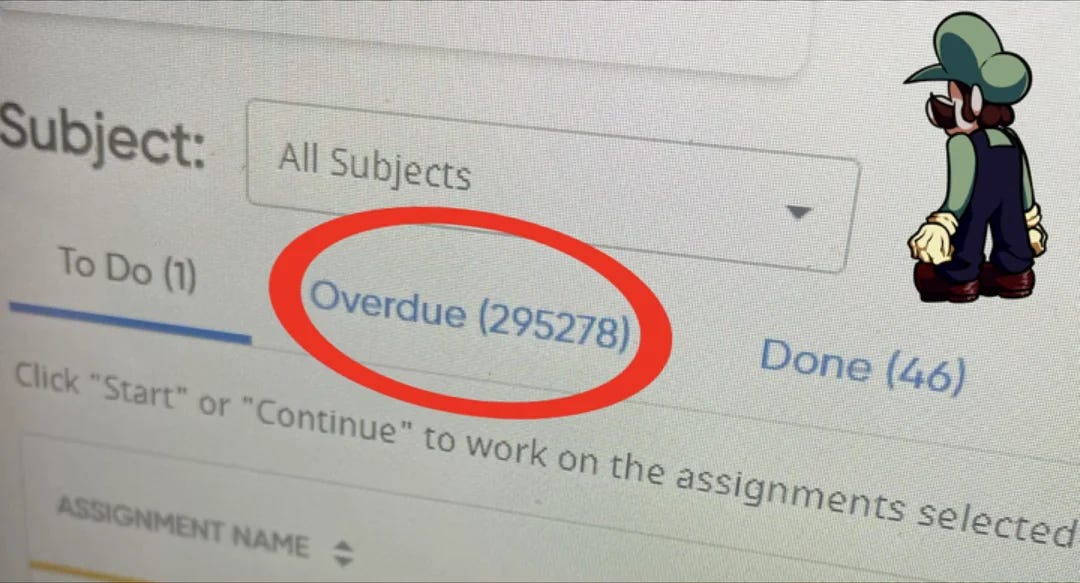"After the Chagim"
This charming procrastination tool is useful for the months of September and October, but can be intimidating once Simchat Torah ends.
In place of pumpkin spice lattes and candy canes, the fall in Israel brings cooler weather and impending deadlines. The cute expression of אחרי החגים (ach-ray ha-cha-geem) or ‘after the holidays’, runs rampant while people push errands and work projects off for a month. In Israel, you can really feel the holidays and many are excited to celebrate them with family and friends free of the pressures of everyday life.
This cuddly expression has found its way into the newspapers as proof of its widespread use in Israeli society. After the postponement of the trial of former Israeli president Moshe Katzav in March of 2008, jurist Aviad HaCohen wrote an angry article, entitled “The Art of Procrastination”, for Israel Hayom that included1:
“Don't put off until tomorrow what you can put off until the day after. This rule probably also applies to the unfinished symphony of the Moshe Katsav affair. If there was a world championship in the"Game on Time", Katsav and his lawyers would have already taken the gold medal on foot. After all, Passover will come immediately, and until "after the holidays" it will not be appropriate to pass judgment on the one who was citizen #1. And then the days of counting the Omer, and the days of the Egyptians will begin, and the long summer break of the courts is also well remembered.” (Translated with the help of Google Translate and some personal editing)
Another use comes from the writer and satirist, Ephraim Kishon, who penned an article for Ynet in August 2004. Kishon referred to many phenomena in Israel as negligence and to the ambiguous language of Israelis as negligence-ese.
“The language of negligence has a dictionary rich in expressions. "It will be all right," means disaster. "Close!" implies that this is impossible. "Soon", that will be in two hours. "One or two days", a year. "After the holidays", never.”2
This is taken to the extreme and not a view held by many, but it still expresses the idea that procrastination is a part of the beginning of the year.
Return to Routine
Similar to the Sunday Scaries that Saturday night can bring as one dreads the beginning of the work/school week, some anxiety can begin to creep in as the holidays approach their end.
The month of Tishrei was jam-packed with holidays and now we enter the month of Cheshvan, which is referred to as Marcheshvan (bitter Cheshvan) because it contains no holidays.
The Academy of the Hebrew Language (discussed in the last post) never seems to disappoint with its social media posts. This picture translates to “Celebrating the after the holiday period”. The ritual objects for this holiday include coffee, wifi, and more coffee.
On the flip side of this negative attitude towards the end of the holidays is a sigh of relief that we can have breathing room outside of bouncing around with holiday fever. As magical as the holiday season can be, it can be overwhelming as we approach the finish line. In response to this, many people don’t mind getting back into the swing and reclaiming their routine.
The absence of a full workweek for a full month can throw some off and have them looking forward to a time when they can dig into those things that have been eluding them.
The Holiday After The Holidays
Whether this time of year excites you as you can find your flow or has you missing the quality time with family and friends, know that Chanuka isn’t too far away.
We may not have candy canes here, but sufganiyot, or fried jelly donuts, will be popping up all over. The sufganiyot game in Israel is quite strong with many bakeries taking baked goods to the next level.
One marvelous aspect of Israel, and of Judaism, is that there’s always another holiday in sight and our tradition teaches us to start preparing for a holiday already a month in advance.
The Podcast
Be sure to listen to our newest podcast episode with Yossi Klein Halevi on Jerusalem and his writing. The episode will be released on Thursday with next week’s post.
There are some exciting guests ahead and I hope you will tune into these conversations with Israel’s cultural movers and shakers.
Song of the Week
אחרי החגים
Awch-ray-ha-cha-geem
After the holidays
Ofra Haza, who came in 2nd at the 1983 Eurovision singing competition, delivers this song with Avi Toledano about the period after the chagim. She takes it more in the direction of a fresh start with the fall season instead of a maligned return to work.
Slang of the Week
חזרה לשגרה - חזל”ש
Cha-za-raw l’sheeg-ruh / chawz-lawsh (shortened)
Return to routine
Some look forward to getting back into the groove, while others dread the shift from relaxation and celebration to the office and stress.
Thank you kindly for reading this week’s post. I hope that you will continue to read and enjoy. Share with family and friends!
Thank you for taking the time to view and listen to our content. Wishing you a Shabbat shalom!
Follow us on:
Website
Spotify
אחרי החגים. Wikipedia. https://he.wikipedia.org/wiki/%D7%90%D7%97%D7%A8%D7%99_%D7%94%D7%97%D7%92%D7%99%D7%9D
אחרי החגים. Wikipedia. https://he.wikipedia.org/wiki/%D7%90%D7%97%D7%A8%D7%99_%D7%94%D7%97%D7%92%D7%99%D7%9D









